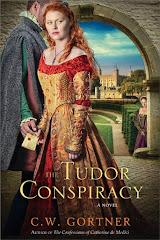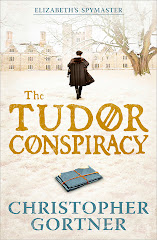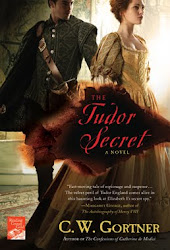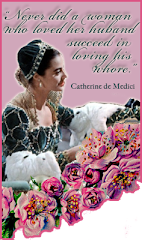 I'm delighted to welcome Jennifer Epstein, author of THE GODS OF HEAVENLY PUNISHMENT and the highly acclaimed, The Painter from Shanghai. Set in World War II, depicting one of the war's most devastating events and its aftermath, The Gods of Heavenly Punishment is an vivid, evocative novel told through the eyes of a fifteen-year-old
Japanese girl, Yoshi, who is on her way home when American bombers shower her city with napalm—an attack that leaves
one hundred thousand dead and half the city in ruins. In the
days that follow, Yoshi’s old life blurs beyond recognition, leading her to
a new world marked by destruction and shaped by those considered the enemy, included a downed bomber pilot taken prisoner; a gifted architect who helped modernize Tokyo’s prewar skyline and is now
charged with destroying it; and an Occupation soldier with a dark secret of his own. Each will
shape Yoshi’s journey as she seeks safety, love, and redemption.
I'm delighted to welcome Jennifer Epstein, author of THE GODS OF HEAVENLY PUNISHMENT and the highly acclaimed, The Painter from Shanghai. Set in World War II, depicting one of the war's most devastating events and its aftermath, The Gods of Heavenly Punishment is an vivid, evocative novel told through the eyes of a fifteen-year-old
Japanese girl, Yoshi, who is on her way home when American bombers shower her city with napalm—an attack that leaves
one hundred thousand dead and half the city in ruins. In the
days that follow, Yoshi’s old life blurs beyond recognition, leading her to
a new world marked by destruction and shaped by those considered the enemy, included a downed bomber pilot taken prisoner; a gifted architect who helped modernize Tokyo’s prewar skyline and is now
charged with destroying it; and an Occupation soldier with a dark secret of his own. Each will
shape Yoshi’s journey as she seeks safety, love, and redemption.Please join me in welcoming Jennifer Epstein, who offers us this guest post on That Pesky Line Between History and Fiction!
One of the most frequent questions I get as a historical
novelist is: “How much of what you write is really history?” It’s a good question. And an important one, I think--especially
given how discomfort-making the blending of fact and fiction can be. It’s sort
of the literary version of mixing beer and liquor: for some people, even the
idea makes them queasy.
I discovered this myself while writing my first novel, The Painter from Shanghai (W.W. Norton
2008). As a former journalist--with both
a BA and an MA in Asian Studies--I take both facts and history very seriously.
At first even I was a little anxious about fictionalizing a real-life character
from a different culture and era. But the story of prostitute-turned-post-Impressionist
Pan Yuliang seemed ideal for a novel, since even in her native China there is
very little documentary evidence about her life. In fact, when I began
researching her in 1999, most people seemed to rely mainly on another
fictionalized biography—one published anonymously during the ‘80’s. Even
academics, I noticed, would refer me to this unattributed, novelized version for
lack of better source material.
As my research progressed, though, I began to notice
something else: namely, a reluctance by some of the sources I approached to be
associated with a fictionalized history. No one said so in so many words. But
there was a clear pattern of dropped email chains and unreturned calls from various
professors and scholars of the “straight” history world to whom I’d reached. Having
never encountered such reticence in my previous field of journalism, I found it
somewhat baffling at first. But an early review for Painter shed some light.
Writing for the scholarly Asian Review of Books, editor Peter Gordon had many nice things to say about my novel. In the end, though, he
admitted that the idea behind my novel unnerved him: “The problem is that the real
Pan keeps on getting in way….one continually wonders how much is real and how
much dramatized…. The result is that The Painter From Shanghai sits at
the intersection of biography and fiction, a place which I personally find
somewhat uncomfortable.” Which led me to ponder: where, exactly, is that intersection? Or rather: what
rules should be followed when mixing “real history” with writerly imagination?
For myself, at least, it’s actually pretty straightforward.
There is no question that truth is important, and it is a period writer’s
responsibility to get the details right wherever and whenever possible. But in
the end, a novelist’s first job is to tell a good story. To craft a compelling
yarn, peopled by characters her readers can not just picture but inhabit--live
and breath, see and sigh and even smell through. And while reassuringly
fact-checkable, names, dates and places alone simply don’t provide a broad
enough palette to do that: to truly “flesh out” historical moments—e.g., drape
them in human skin--sometimes one simply must fabricate.
 Recognizing this, the rules I’ve set for myself
are simple. I research my projects intensely, get all my facts straight, and
resolve to do my best to stick to them. I am allowed, however, to take
historical liberties that are at least somewhat plausible—in other words, don’t
contradict broadly-accepted historical fact. For instance, in fictionalizing
Pan Yuliang’s story I have her meet the Chinese revolutionary Zhou Enlai at
Lyon University, and then again later on in Shanghai. There’s actually no
historical proof the two ever really met. And yet the fact that these two real figures
were in Lyon and Shanghai at the same time, and definitely knew people in
common, made it seem credible to me that they might have met. Moreover, introducing
Zhou as a character was a way to give readers a taste of the time’s political
fervor and excitement, which was one of my goals as a novelist. And so, I
picked him for my palette. The same rationale wouldn’t have worked for every character from the period, however. For
instance, seating Mao Zedong at Pan’s table at Les Deux Magots would have been taking it too far, since anyone
familiar with the story of China’s revolutionaries in Paris would know he
wasn’t part of that cliché.
Recognizing this, the rules I’ve set for myself
are simple. I research my projects intensely, get all my facts straight, and
resolve to do my best to stick to them. I am allowed, however, to take
historical liberties that are at least somewhat plausible—in other words, don’t
contradict broadly-accepted historical fact. For instance, in fictionalizing
Pan Yuliang’s story I have her meet the Chinese revolutionary Zhou Enlai at
Lyon University, and then again later on in Shanghai. There’s actually no
historical proof the two ever really met. And yet the fact that these two real figures
were in Lyon and Shanghai at the same time, and definitely knew people in
common, made it seem credible to me that they might have met. Moreover, introducing
Zhou as a character was a way to give readers a taste of the time’s political
fervor and excitement, which was one of my goals as a novelist. And so, I
picked him for my palette. The same rationale wouldn’t have worked for every character from the period, however. For
instance, seating Mao Zedong at Pan’s table at Les Deux Magots would have been taking it too far, since anyone
familiar with the story of China’s revolutionaries in Paris would know he
wasn’t part of that cliché.
Similarly, in The Gods of Heavenly Punishment I’ve added a fictional bomber (Cam
Richards) to the heroic band of Doolittle Raiders who flew our first strike
against Japan. Confession: no one by
that name ever existed. Still, almost everything that happened to Cam Richards did
happen to a Doolittle Raider, with the exception of where his bomber crashes.
In my novel, this happens in Japan-colonized Manchuria, which is not a stretch most
readers would notice. Besides, I needed my heroine—who visits a Japanese
settlement in Manchuria shortly after the crash—to receive an item that had
belonged to Cam’s wife. So overall, I figured I was within my rights to move
Cam’s doomed bomber further North than any of the Doolittlers actually flew. It
would not have been within my rights,
however, if I decided to add, say, a third nuclear bombing at the end of the
Pacific War. For one thing, it would add nothing to the story I was trying to
tell. But there’s also the fact that most people stop mid-page and think: “Wait,
that didn’t happen.” Then they’d probably
wonder why I wrote it, and whether other historical facts in my book were
fabricated. At which point I’d be guilty of a far greater authorial sin than
veering from history: losing my reader.
So to the extent that there are rules about
mixing fact and fiction without bilious results, they probably boil down
thus:
1* Be factual whenever possible.
2* Don’t
mess with the really big stuff.
3* Above
all, tell a really good story.
That said, sometimes fictional narrative can play into historical truth in unexpected ways. One of my own more memorable research moments in Painter occurred over the Chinese lover I wrote into Pan’s early years in Paris. When my factchecker asked how I’d come across this character, I told the truth: that he was based on a painting of Pan’s, of a strong young man holding Chinese soil in his hands. I’d imagined him as a fellow artist, one of the Chinese students fermenting revolution in smoky Left Bank cafes. Also, someone younger than she was (I thought she’d like that). “But where did you read about him?” asked my researcher, who happened to be Chinese. She went on to tell me that there’s a man who fits the same profile as my character who lived with Pan for years in Paris, and now lies buried next to her in Montemarte. For a moment I just stared at her. Then I burst out laughing. Well, what do you know, I thought. In this one case, at least, my fiction had led me straight to the facts.
Thank you, Jennifer! Best of success with The Gods of Heavenly Punishment. To learn more about Jennifer and her work, please visit her website
.

















